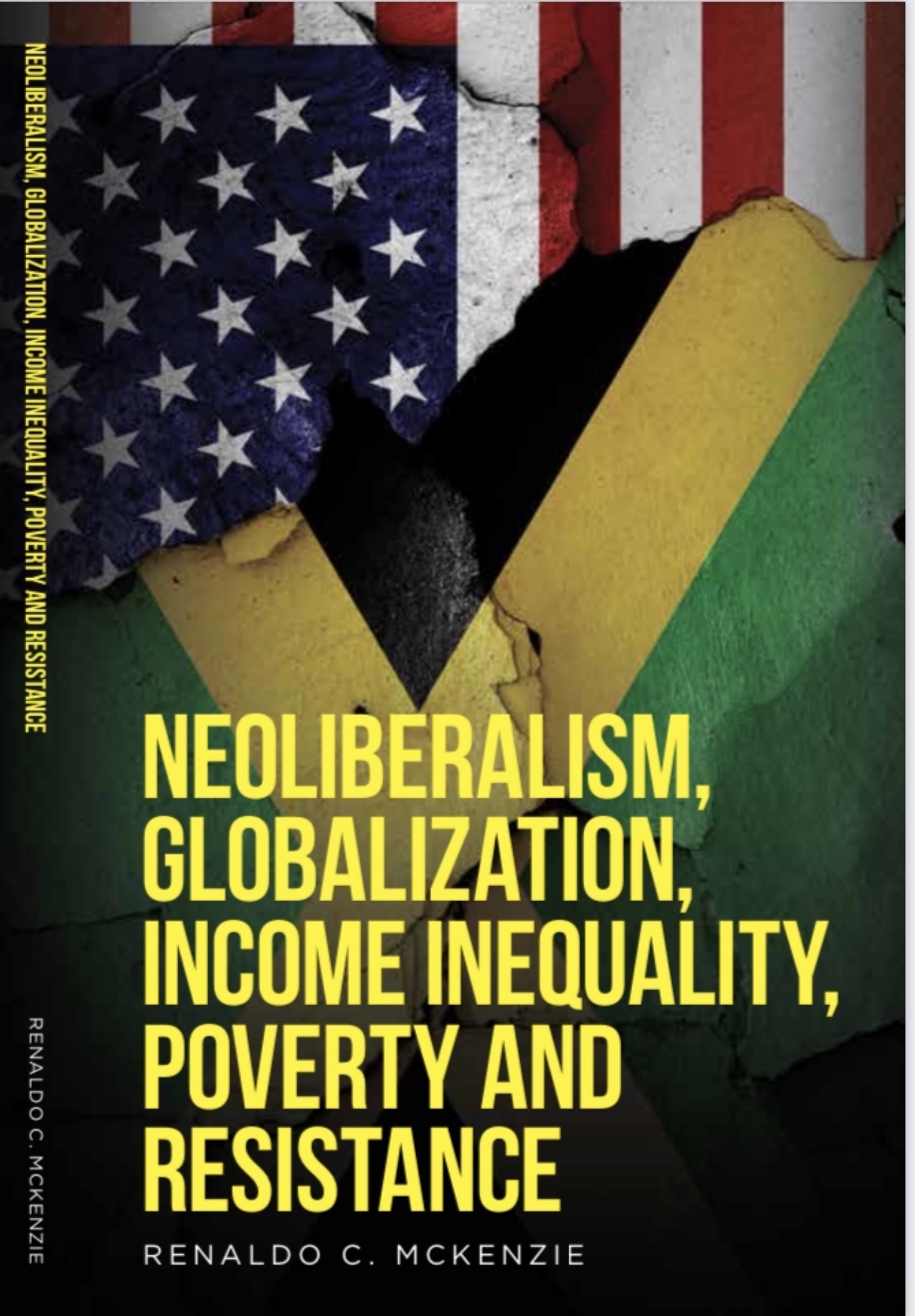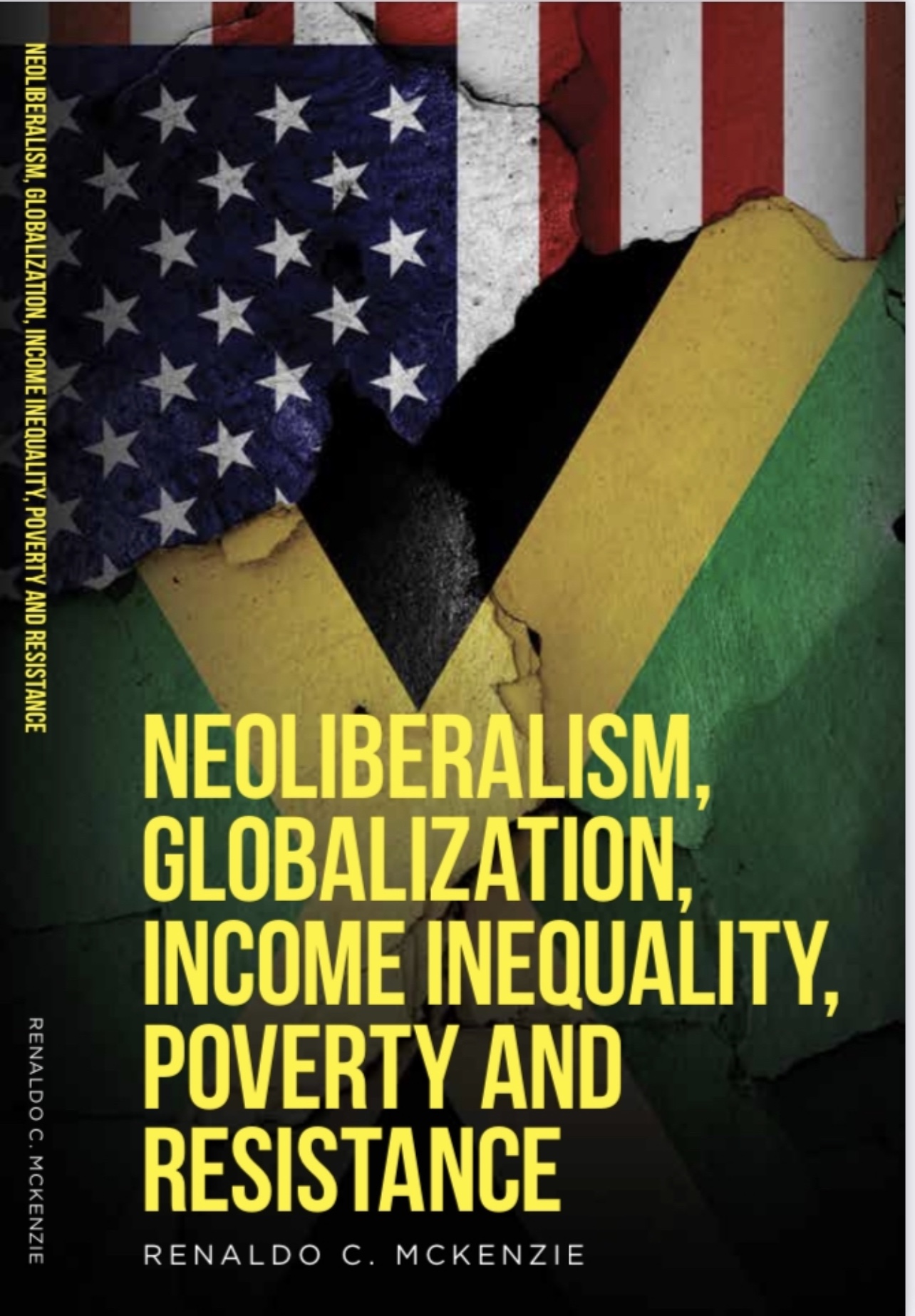The NeoLiberal sat down with the Author of Neoliberalism for short to discuss the upcoming Book: Neoliberalism Globalization Income Inequality Poverty And Resistance.

Reporter: What is your book’s specific genre?Fiction or Non-fiction?
Author: Non-fiction, textbook, Interdisciplinary – Social, political, historical, cultural, economics and resistance.
Reporter: How would you summarize your book?
Author: My upcoming book is divided into two parts. Part A will examine whether or not Jamaica’s inequality trends from 1980 – up to the beginning of the 21st century was a consequence of the structural adjustment policies stipulated by the neo-liberal technocrats of the ‘Washington Consensus’ on Jamaica. We will attempt to do so by tracing the impact of “structural adjustment” on Jamaica’s economy and the relationship to this on income inequality and poverty in Jamaica. We will argue that given the premise, Jamaica presents a unique cause and effect scenario, which continues to question the veracity and validity of the premise that neoliberalism is the “sine qua non” of development.
Part B of the Book will argue, given Jamaica’s experience with neoliberal restructuring. that Jamaica like many former colonies are far from independent. The fact is that decolonization and “neoliberal globalization”has deepened Jamaica’s dependence on the new global elite of the “Washington consensus”. We will explore how Fanon’s ideas apply to the de/re/colonization and neoliberal globalization experience of Jamaica? My own observations are oriented by my interest in the political economy of decolonisation and neoliberal globalization.
Further, we will consider the response to the processes of decolonization and globalization that have deepened the realities of the peoples of the global south. Certainly, the Resistance Movement, particularly the Global Justice Movement (GJM) has had hundreds of protests against the “Washington Consensus” and their lackeys since 1976. Street protests and some degree of violence have been the main strategies of the group until recently. But is it closer to achieving its aims? The effectiveness of this resistance movement we call the Global Justice Movement in our discussions here, will be determined by the extent to which it has realized actual power: “demonstrated change in the desired direction”.
Finally, we will conclude with a discussion on critiquing the work of nationalists to bring about political independence and equity within and among nations and peoples of the global south including those in the diaspora. For, when nationalists speak in the name of the working class, they leave the impression of espousing a working class political agenda. However, their project does not break with bourgeois consciousness and they never manage to see a way beyond capitalism. They may imagine ways to reduce foreign penetration, domination and what passes for ‘cultural imperialism,’ however this stance reinforces capitalist class relations and bourgeois ideology while it fails to benefit the working class in any fundamental way. We will explore these limitations and consider possible alternatives.
Reporter: Describe the specific tone, themes, and mood you would like your book to convey to readers.
Author: The book in interdisciplinary and provokes feelings of hurt but assesses solutions to the problems and dilemmas it considers. It is poetic, anthropological, and academic. Neoliberalism continues the exploration of globalization and how it has largely disproportionately affected black and brown people of the global south and its diaspora with a case study of Jamaica and comparative examples drawn from other countries affected by neoliberal globalization. It examines the ways peoples have responded to globalization and whether these are effective to realize change in the right direction. The book is evocative and provoking. It asks a lot of questions and challenges previous thinking but also supports them. It challenges those affected by globalization to become creative and chart a course of economic prosperity and interdependence. It is historical as it traces the economic and political history that shapes social life in the globalized world where nationalism and populism is rising. The book is philosophical as it invites a discussion. About truth of ones existence and realities and explores ideologies that affects the ways we respond to realities.
What would you like readers to take away from the book? What is the book’s main idea or overall purpose?
View the article at


